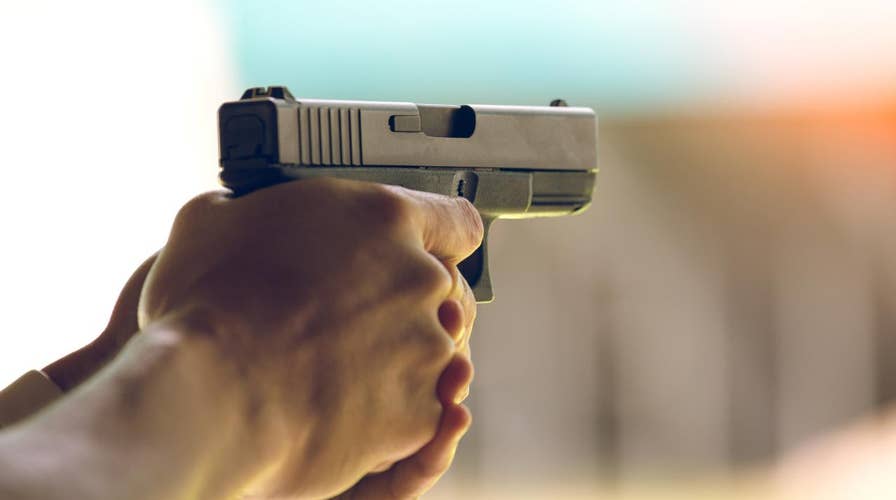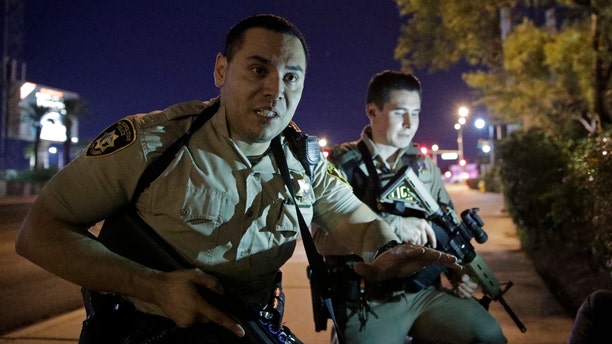Las Vegas shooting: What are Nevada’s gun laws?
The deadly shooting at a Las Vegas concert has claimed more than 50 lives and injured hundreds more. It made Nevada the home of the deadliest mass shooting in U.S. history. Here’s a look at the gun laws in the state.
A gunman perched high above thousands of concertgoers in Las Vegas killed at least 59 people and injured more than 520 when he rained down gunfire on the crowd Sunday night.
Police said 64-year-old Stephen Paddock, the suspected gunman, stocked his Las Vegas hotel room with as many as 10 rifles. Paddock fired from the 32nd floor of the Mandalay Bay casino-hotel tower on the Las Vegas Strip on some 22,000 people attending the outdoor Route 91 Harvest Music Festival, authorities said.
Paddock killed himself prior to law enforcement officials entering the hotel room, police said. A motive for the massacre has not yet been revealed.
Witnesses described the sound of rapid automatic gunfire – which many believed to be firecrackers – ringing out as thousands ran for cover. One vendor told Fox News that “it sounded like a machine gun.”
Here’s what the federal and Nevada state laws say about machine guns and rifles.
U.S. laws
The Bureau of Alcohol, Tobacco, Firearms and Explosives defines a rifle as “a weapon designed or redesigned, made or remade, and intended to be fired from the shoulder and designed or redesigned and made or remade to use the energy of the explosive in a fixed metallic cartridge to fire only a single projectile through a rifled bore for each single pull of the trigger.”
The ATF defines a machine gun as: “Any weapon which shoots, is designed to shoot, or can be readily restored to shoot, automatically more than one shot without manual reloading, by a single function of the trigger.”
FULL COVERAGE OF LAS VEGAS MASSACRE
Enacted in 1934, the National Firearms Act imposed taxes and regulations on certain firearms. A 1986 amendment prohibited the transfer or possession of machine guns made after 1986 – with government agencies an exception.
The law also regulates the possession of rifles with a barrel of less than 16 inches in length or shotguns with a barrel of less than 18 inches.
Nevada laws
Nevadans are allowed to purchase, possess or sell a machine gun as long as it is legally registered and complies with federal regulations, according to the lobbying arm of the National Rifle Association.
The NRA’s Institute for Legislative Action said the state does not require a permit to purchase or possess a rifle, shotgun or handgun.
Some states have additional requirements or bans on the possession of machine guns.



